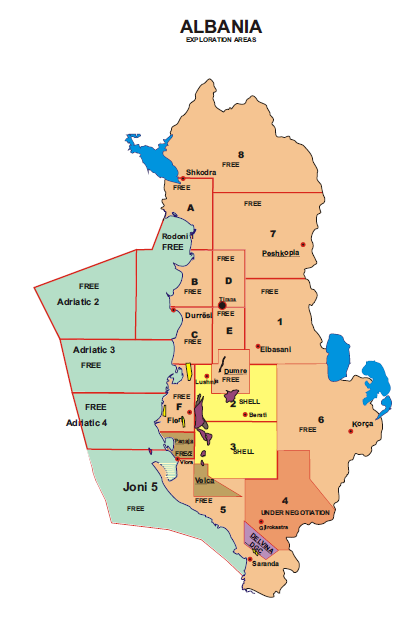Albania is an upper middle-income country with a gross domestic product (GDP) per capita of USD 5,286 (2020 IMF estimate) and a population of approximately 2.9 million people. The IMF estimates that Albania’s economy contracted by 3.5% in 2020, due to the combined effect of the COVID-19 pandemic and the November 2019 earthquake. The contraction is smaller than initial forecasts due positive net growth in construction, real estate, and agriculture sectors fueled by government spending and private investments in real estate. In 2020, the IMF disbursed USD190 million under the Rapid Financing Instrument, the World Bank approved USD 80 million under its Fiscal Sustainability and Growth Development Policy Financing (DPF) program, and the EU approved around USD 205 million for Albania under its 3-Billion-Euro Macro-Financial Assistance (MFA) package for ten enlargement and neighborhood partners.
The IMF projects the economy will grow by 5 percent in 2021. The rebound is expected to be fueled mostly by increased consumption, better performance of tourism sector, continued post-earthquake reconstruction program financed by the government, and close to USD 330 million in grants raised from the post-earthquake International Donors Conference in February 2020.
However, uncertainties related to the pandemic, elevated fiscal deficits and public debt, and a relatively high level of non-performing loans (NPLs) present challenges for the projected recovery. In 2020, the fiscal deficit expanded from 1.9% to 6.7% year-on-year and public debt increased from 66.6% to almost 80% of GDP.
Albania received EU candidate status in June 2014, and in March 2020, the European Council endorsed the recommendation of the European Commission to open accession talks with Albania. Albania awaits its first Intergovernmental Conference, which would mark the start of accession negotiations. The country joined the World Trade Organization (WTO) in 2000 and the North Atlantic Treaty Organization (NATO) in 2009.
Albania enjoys important trade benefits with EU members since it signed and ratified the Stabilization and Association Agreement (SAA) in 2006. Albania has a free trade agreement (FTA) with Turkey and is a signatory to the Central European Free Trade Agreement (CEFTA), which includes North Macedonia, Montenegro, Kosovo, Moldova, Bosnia and Herzegovina, and Serbia. In June 2009, Albania also signed an FTA with the European Free Trade Association (EFTA), which includes Iceland, Liechtenstein, Norway, and Switzerland.
Exports of merchandise totaled USD 2.5 billion in 2020, 1.19% of which were destined for the United States. Albania imported USD 5.6 billion of goods in 2020, 1.56% of which originated in the United States. Primary exports from the United States to Albania include vehicles and spare parts, meat, and telecommunications equipment. Primary exports from Albania to the United States include ferro-alloys, medicinal and aromatic herbs, and footwear. Two-way trade in goods between Albania and the United States totaled USD 117 million in 2019. The EU remains Albania’s primary trading partner. In 2020, the EU provided 58% of Albania’s imports and received 74.7% of its exports. Albania’s primary trading partners in ranking order are Italy, Greece, China, Germany, and Turkey.
Albania offers good prospects for exports across all sectors, particularly in energy, oil and gas, tourism, healthcare, food, infrastructure, construction, and information and communication technology (ICT.)
Political & Economic Environment: State Department’s website for background on the country’s political environment.
